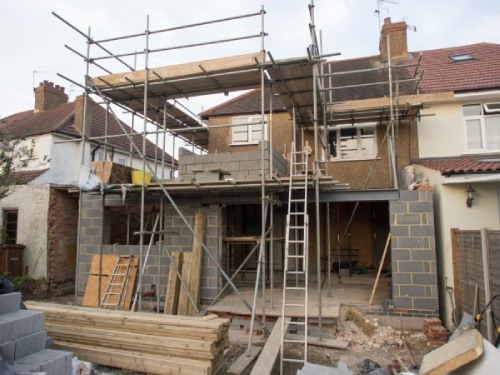
Building warranties are a crucial aspect of the construction industry, providing assurance that a building or structure meets certain standards and will perform as intended. However, despite the best efforts of architects, engineers, and contractors, defects and issues can still arise.
In this article, we will explore the ins and outs of building warranty insurance, including what it covers, who needs it, and how it works. We will also delve into the legal aspects of building warranties and how they intersect with insurance policies. By understanding your rights and obligations under building warranty insurance policies, you can avoid costly mistakes and ensure that your investment is properly protected.
What is Building Warranty Insurance?
Building warranty insurance is a specialised type of insurance that protects property owners and builders from financial loss resulting from defects or issues that may arise during the construction process or after the completion of a building project. These policies provide cover for a range of risks, including structural damage, water damage, electrical and mechanical failures, and other unforeseen problems that may affect the building’s performance or safety.
There are several types of building warranty insurance policies available, catering to different needs and budgets. For instance, some policies offer comprehensive cover for new builds, extensions, and renovations, while others provide limited cover for specific risks such as structural damage or water ingress. Policies may also vary in terms of their duration, excess levels, and coverage limits.
The key features and benefits of building warranty insurance include:
- Protection against financial loss due to unforeseen defects or issues.
- Reduced risk exposure for property owners and builders.
- Peace of mind throughout the construction process and beyond.
- Coverage for a wide range of risks, including structural damage, water damage, and electrical/mechanical failures.
- Customisable policies to suit individual needs and budgets.
- Typically, transferable to subsequent owners or tenants, enhancing property value.
Who Needs Building Warranty Insurance?

Property owners, whether residential or commercial, need building warranty insurance to protect their investments from unexpected defects or damages that may arise during or after construction. Homeowners, for instance, can benefit from comprehensive coverage for their newly built or renovated homes, ensuring peace of mind and financial security. Commercial property owners, on the other hand, can minimise the risks associated with large-scale construction projects, such as office buildings, shopping centres, or industrial facilities.
Builders and developers also greatly benefit from building warranty insurance. It not only provides them with financial protection but also helps maintain their reputation by delivering high-quality workmanship and materials. In the event of a claim, builders can rely on the insurer to cover the costs of repairs or rebuilding, reducing the financial burden and potential legal disputes.
Architects, engineers, contractors, and suppliers are also stakeholders who can benefit from building warranty insurance. They can be held liable for design or construction flaws, and having appropriate insurance coverage can shield them from financial losses. Moreover, being insured can enhance their credibility and competitiveness when bidding for projects or working with clients.
Common Issues with Building Warranties
One of the most frequent issues is defects and deficiencies in building work. This can include poor workmanship, substandard materials, or failure to meet building codes and regulations. Building warranty insurance may cover the cost of rectifying these defects, but it is essential to identify them early to avoid further damage.
Another issue is material damage and deterioration over time. Buildings exposed to harsh weather conditions, poor maintenance, or wear and tear may experience damage to roofing, walls, windows, and doors. While building warranty insurance may cover some of this damage, preventive measures like regular maintenance and upkeep are crucial to extend the lifespan of the building.
Design faults and compliance issues are additional concerns. A building may have been constructed according to the approved plans, but still, have design flaws that become apparent later. Similarly, changes in regulations or code requirements can render a previously compliant building non-compliant.
Delays in completion and handover are another common problem. Inclement weather, labour shortages, or unexpected site conditions can cause delays, leading to additional costs and frustration. Building warranty insurance may provide some relief, but it is crucial to communicate openly with all parties involved to manage expectations.
How Building Warranty Insurance Can Help Mitigate Risk

Building warranty insurance offers numerous ways to mitigate risk for both property owners and builders. Firstly, it protects against financial loss resulting from defects or damage to the building. This includes covering the cost of repairing or replacing defective materials, labour expenses, and other related expenditures. By having this type of insurance, property owners and builders can avoid incurring substantial financial burdens that could potentially bankrupt them.
Building warranty insurance often covers legal fees and dispute resolution costs associated with claims. This means that if a dispute arises between the property owner and builder, or if a third party files a claim against either party, the insurance provider will assist in resolving the matter and absorbing the associated costs. This can save both parties a significant amount of time, money, and stress.
Perhaps the most significant advantage of building warranty insurance is the peace of mind it affords property owners and builders. Knowing that they are protected against unforeseen events and financial losses allows them to focus on other aspects of their business or personal lives without constant worry about potential construction-related issues.
Understanding Your Rights and Obligations
When purchasing a building warranty insurance policy, it’s essential to understand your rights and obligations as a property owner or builder. The first step is to thoroughly review the policy terms and conditions, including what is covered and what is excluded. Pay particular attention to any exclusions, limitations, or deductibles that may apply. Additionally, familiarise yourself with the claims procedure, which outlines the steps you must follow when making a claim. This typically involves notifying the insurer promptly, providing documentation to support your claim, and cooperating with the insurer’s investigation.
It’s also critical to understand any time limits that apply to reporting defects and making claims. Most policies have specific time frames within which you must report any issues or file a claim. Failure to meet these deadlines may result in your claim being denied. In the event of a dispute between parties involved in the project, such as between the property owner and builder, it’s important to know how to handle the situation effectively. Many building warranty insurance policies offer dispute resolution mechanisms, such as mediation or arbitration, to help resolve conflicts. It’s essential to understand how these processes work and seek professional advice if necessary.
Choosing the Right Building Warranty Insurance Policy
When choosing the right building warranty insurance policy, there are several factors to consider. One of the most important is the length of coverage, as well as any renewal options. Some policies may offer longer periods of coverage, while others may have more flexible renewal options. It’s important to consider the stage of your project and how long you’ll need coverage.
Another key factor to consider is the excess and deductible amounts. The excess is the amount you must pay towards a claim, while the deductible is the amount deducted from the total claim amount. A higher excess or deductible can lower your premiums, but it means you’ll have to pay more upfront if something goes wrong. Conversely, a lower excess or deductible will increase your premiums, but you’ll have less financial responsibility in the event of a claim.
We strongly advise property owners and builders to seek professional advice before purchasing a building warranty insurance policy. A qualified advisor can help you navigate the complexities of the policy and ensure that you have the appropriate level of coverage for your specific needs. Don’t leave your investment to chance – take the necessary steps to protect your assets and avoid costly surprises down the line.

